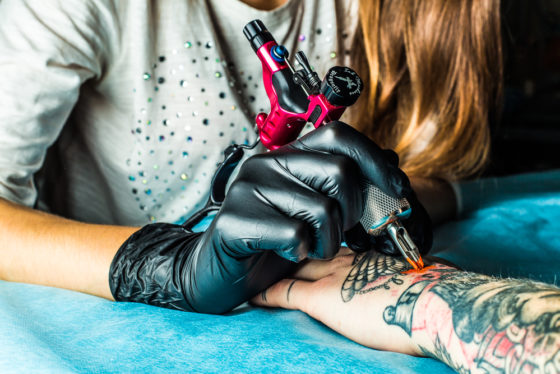New rules for tattoo artists create confusion ahead of EU pigment ban


Tattoo artists in the Netherlands will have to abide by new rules from January, in line with both Dutch and EU legislation, but with two months before the switch, much remains unclear, tattoo shop owners have told broadcaster NOS.
The biggest changes involve new regulations for inks which contain substances which can cause cancer and genetic mutations, or irritate the skin.
This means thousands of hazardous chemicals found in tattoo inks and permanent make-up will be restricted from 2022, the European Chemicals Agency has said.
Two colours – Pigment Blue 15:3 and Pigment Green 7 – do not yet have safer and technically adequate alternatives and will not be banned until 2023, the agency said.
Tattoo artist Amanda Remmington told NOS she understands little of the European rules. ‘My colleagues and I have never had a complaint,’ she said. ‘The only colour that causes irritation is red.’
The ink ban will also have an impact on larger tattoos which take time to complete and may not now be finished, said tattoo artist Timen from Assen.
Chaos
The Netherlands’ most famous tattoo artist Henk Schiffmacher, told the AD in September, he is furious about the new rules.
‘This is the work of an overzealous civil servant and will create chaos,’ Schiffmacher said. ‘I’ve been doing it for 45 years and now you are telling me I am doing it wrong?…The people in charge don’t know a thing about tattooing, but are being influenced by all kinds of lobbyists when making their decisions.’
Coloured ink is only an health risk when it starts to move to other parts of the body, as it does when a tattoo is being removed.
Hygiene
The new Dutch rules involve stricter hygiene measures, and also state that the area where tattoos are placed must be separate from the rest of the shop.
In the longer term, the Netherlands may also raise the minimum age to get a tattoo from 16, or 12 with a parent’s permission and increase training requirements, NOS said.
Monitoring compliance with the new rules will be up to the Dutch food and product safety board and will start from January, the health ministry has said.
Thank you for donating to DutchNews.nl.
We could not provide the Dutch News service, and keep it free of charge, without the generous support of our readers. Your donations allow us to report on issues you tell us matter, and provide you with a summary of the most important Dutch news each day.
Make a donation